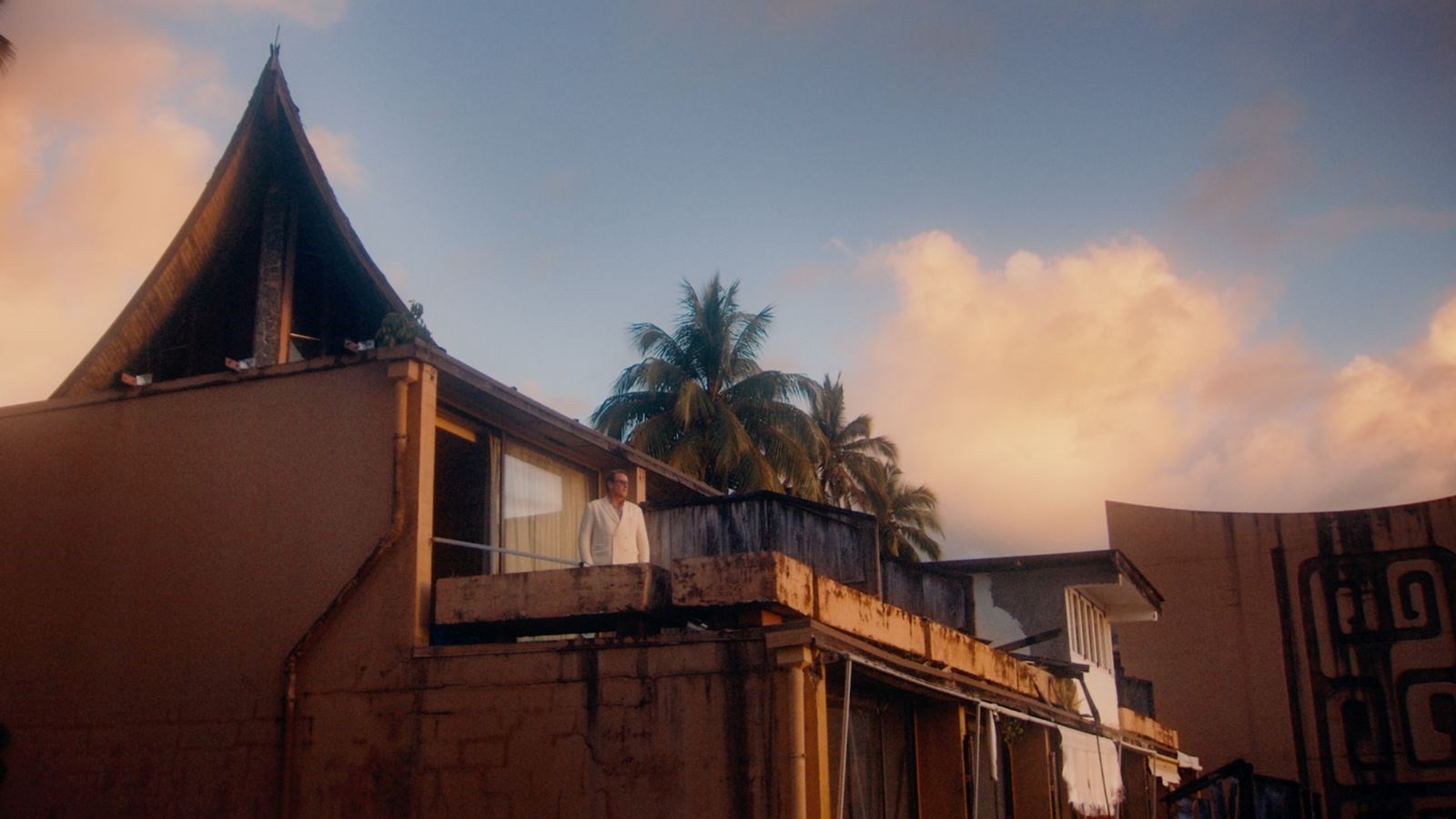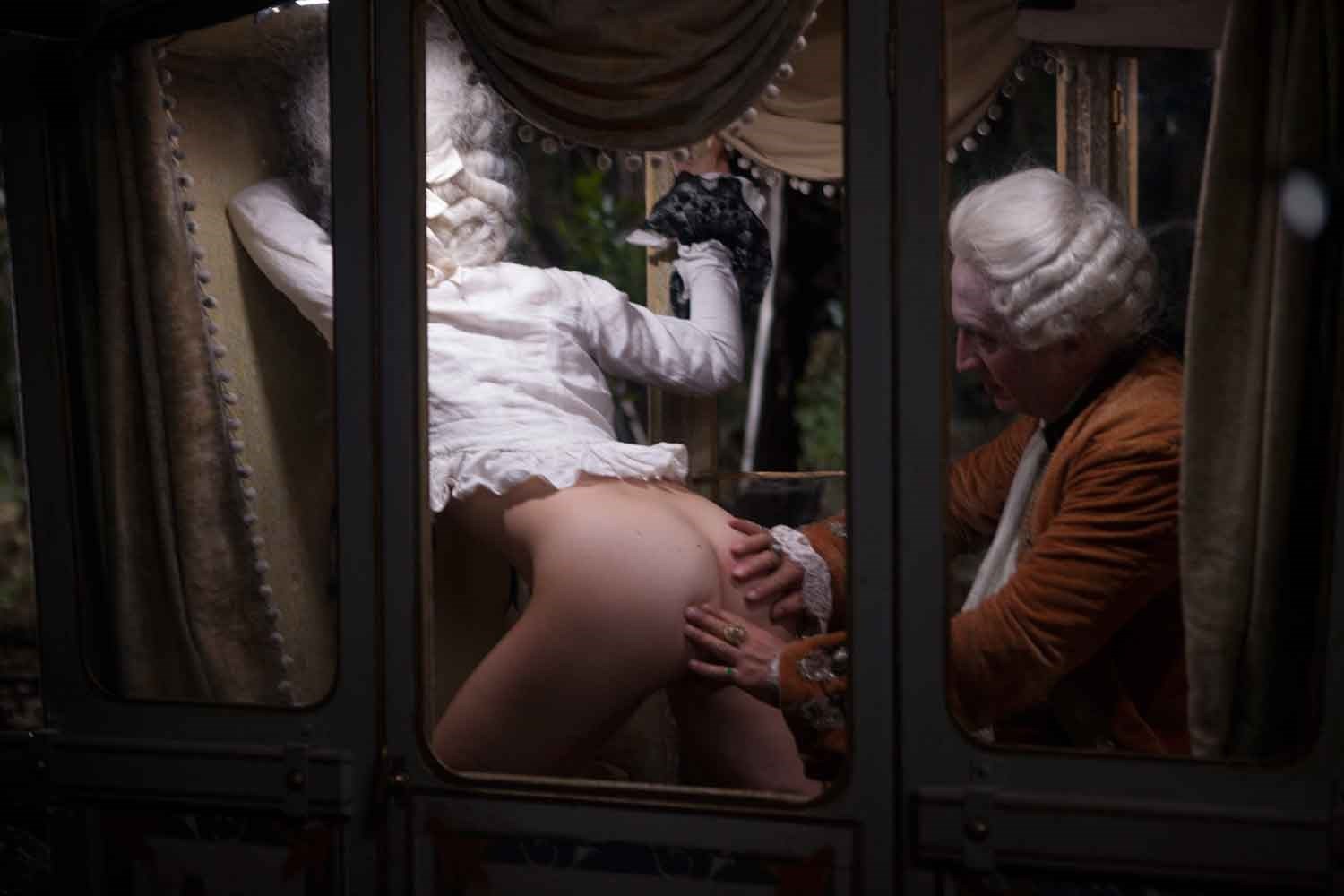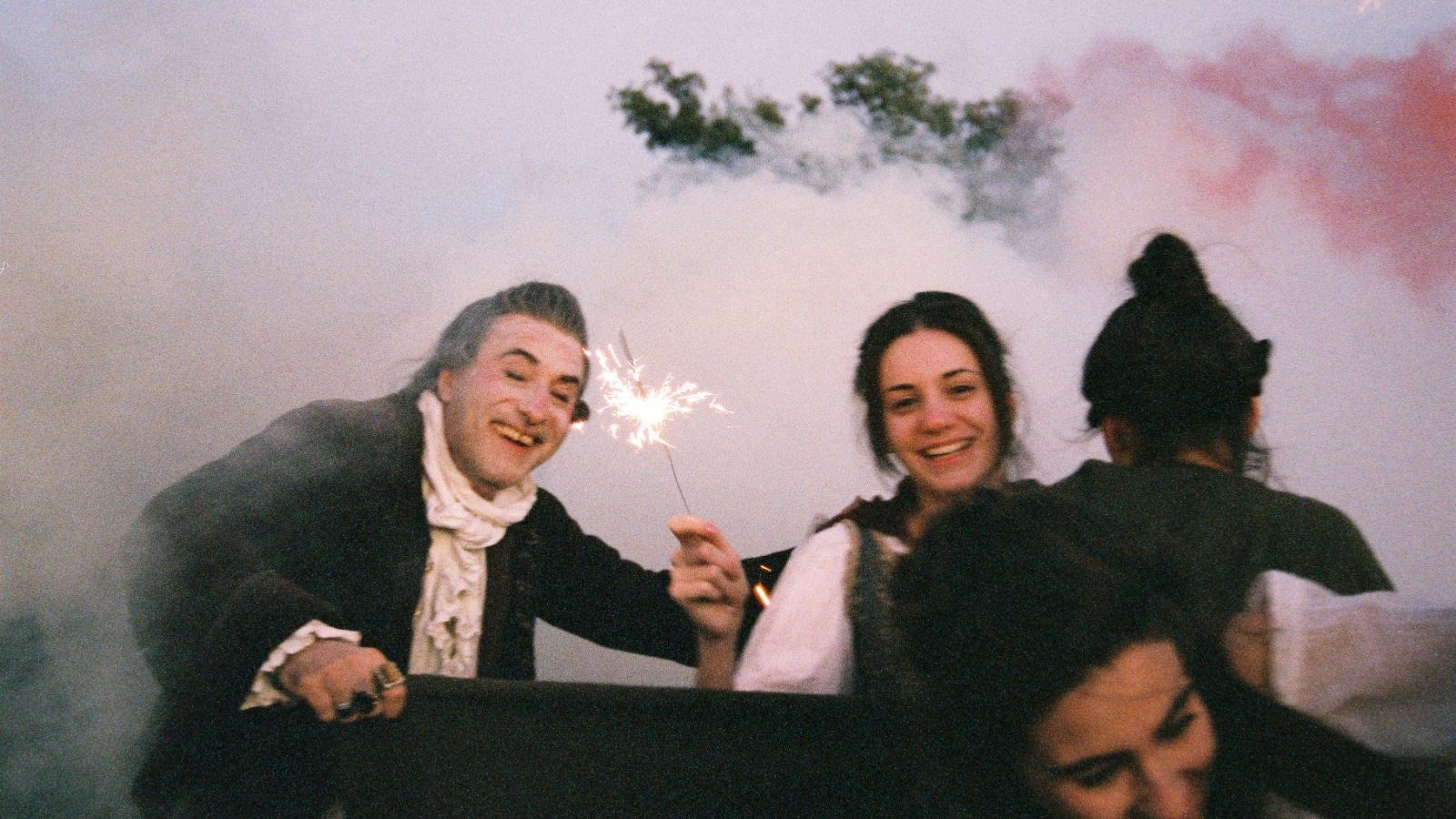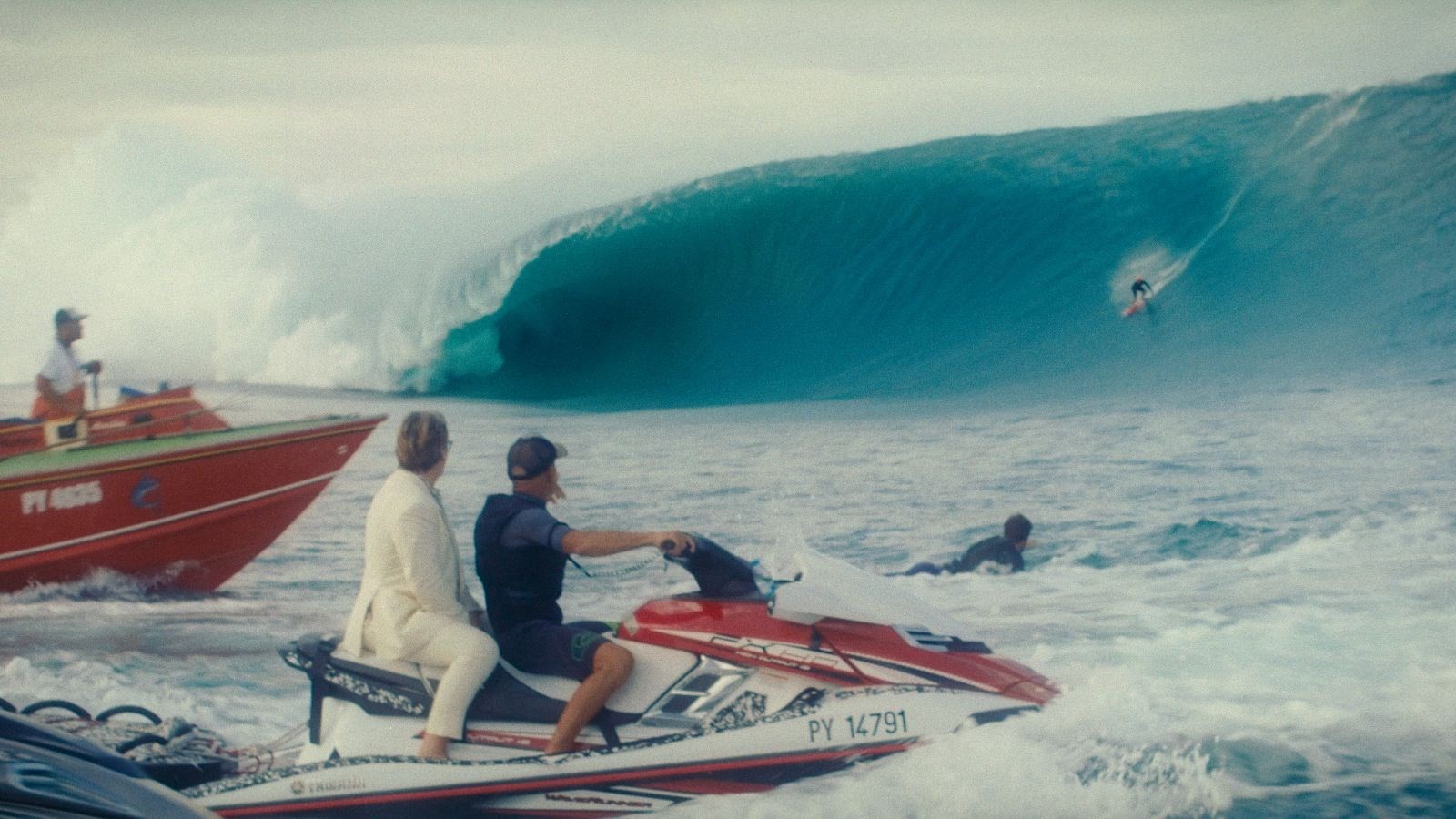
Rewrite
Lead ImageAlbert SerraPhotography by Román Yñán
There are five stages to watching a film by notorious slow-cinéaste Albert Serra. Denial (It can’t be as slow as all that?), anger (Oh wait … it is), bargaining (surely something should be happening right about now?), depression (when will this end?) and, finally, if you’re lucky, sheer transcendence.
To his critics, the Catalan auteur’s films are “pig-headedly slow”, “unbelievably arrogant” and (my own personal fave) “plotless hardcore BDSM pornography”. But for those willing to countenance his claim that he’s the “greatest Spanish filmmaker since Buñuel”, they’re like … what, exactly? Watching paint dry on the Sistine Chapel? There’s a strange magic there that can’t be denied.

Serra’s films belong to a tradition of deliberately ponderous, metaphysical cinema that dates back to pioneering figures like Andrei Tarkovsky and Michelangelo Antonioni but really took off around the turn of the millennium, with the likes of Tsai Ming-liang, Apichatpong Weerasethakul and Pedro Costa pioneering a style of long takes, patient, static camerawork and minimal dialogue. It was a movement enabled in part by advancements in digital technology, allowing filmmakers of slender financial means to film over lengthy spells of time, which ironically seemed to protest the rapidly increasing pace of life such technology engendered. More recently, in 2017, Paul Schrader questioned whether the style might have run out of road, its ever-attenuating tempos more suited to art installations than cinema proper.
“Fuck the spectator,” says Serra with a shrug over Zoom, when pressed on whether there’s a limit to how slow his films might go. “It’s like if you’re in a restaurant with your friends and there’s someone else coming who is not from your close group. You don’t spend the whole evening making private jokes; you want them to integrate a little bit into the party. [It’s the same with my films]: I don’t want them to feel totally a part of the party, because, hey, it’s not our close friends. But we don’t want to leave them out, because we invited them to our table.”
Serra in full conversational flow is a force to be reckoned with, prone to dropping highly charged statements and making repeated references in his chewy Catalan accent to the ‘cows’ he enjoys creating on set. (He means ‘chaos’, I later realise.) Shooting hundreds of hours of footage on digital cameras and ruthlessly cutting away in search of moments that are authentic, his films take a cryptic approach to unapologetically big-picture themes, circling philosophical currents in Western history and how they eventually wash up. It’s an attritional MO that’s seen him clash with actors in the past, (“They should pay me to be in the film,” he once huffed in interview) but, for those brave enough to try it, the experience can be exhilarating (Benoît Magimel said he’d never enjoyed so much “freedom” as on the set of Pacifiction, Serra’s Palme d’Or nominated film from last year.)

In Story of My Death (2013), which pits an ageing Casanova against Dracula in a tale of two lotharios, it was enlightenment-era rationalism that came under his lens. In The Death of Louis XIV, it was rule by divine right, France’s most celebrated monarch (played by new-wave legend Jean-Pierre Léaud) shuffling off his mortal coil in agonising real-time. And in the X-rated Liberté (2019) it was sexual repression, in what was basically a feature-length dogging session between 18th-century libertines. Whatever their longueurs, are offset by an impish humour and playfulness Serra has kept close since the moment he decided he wanted to be a filmmaker, at a party in his hometown of Banyoles during his early twenties. “Maybe life should always be filled with this magic,” he recalls thinking in his new book, A Toast to St Martirià, reproducing a speech he gave in his hometown of Banyoles elaborating on his filmmaking philosophy and Catalan heritage.
Period films are a forte, then, and it’s possible to see in Serra’s irreverent approach the beginnings of today’s obsession with anachronistic historical drama – an unlikely thread that links Serra to The Favourite and, yes, Bridgerton. But Serra turned his gaze on our own waning days of Western liberalism with Pacifiction, a transfixing study of a corrupt French diplomat (Benoît Magimel) adrift in Tahiti. Swathed in cinematographer Artur Tort’s glowering sunset hues, its portrait of postcolonial malaise retained the teasing mystery of his earlier films, while assuming the shape of a paranoid political thriller: it’s no coincidence it was his biggest critical hit to date.
“I have to finish the edit to really understand what my film is about” – Albert Serra
Occasionally, Serra’s strident approach to self-publicity lands him in trouble: as a jury member at the Berlin film festival in February, he was labelled a “Putin admirer” by a journalist who picked up on previous comments expressing his fascination with populist demagogues like Trump and Putin. It’s a theme Serra returns to briefly in his book, which presents a speech he gave in Banyoles outlining some of his thoughts on filmmaking, along with scattered bits of writing and a self-interview that yields insights such as the following: “What Donald Trump says in his tweets is funnier, more interesting and more provocative than anything professional comics or playwright are doing [right now]”. Ouch.
On one level, Serra’s interest in the ongoing populist freakshow is not so hard to fathom: the current neoliberal consensus simply isn’t working. “It’s really very simple: more and more people are disappointed with this system, you know?” says the director from his flat in Paris, days before the National Rally’s win the first round of the French legislative elections. “You don’t need to be a genius to understand that. The difference between rich and poor has been increasing every year, every year, every year. And now you have these companies that are worth more than big European countries – Apple is worth more than the GDP of the entire UK, for example. And this will have a lot of collateral damage because either you’re part of this high-level [world] or you’re fucked. So it’s only natural that people will complain.” For Serra, figures like Trump cut through because their performances are more ‘authentic’, even if the ideas are dangerous: “Not the ideas, never the ideas,” he says, waving the thought away with exaggerated distaste. “It’s more that, from the acting point of view, [the populists] have better actors.”

Remarkably, given past form on the subject, his latest project to get greenlit is Out of This World, a film about an American diplomat travelling to Russia in the midst of the Ukraine war. (Serra promises a lot of “irony and lightness” in his treatment of the subject, which I think is supposed to reassure me.) Kristen Stewart is in talks to star, though they are currently trying to align their schedules. “I like Kristen a lot, I think she’s extremely talented and also quite rock and roll from a personal point of view,” says Serra, who singles out the “ambiguous” qualities Stewart brings to the screen for praise. “But the problem is dates and availability, [because] now she’s started shooting a film herself as director. So we will see what happens.”
Before then, he’s putting the finishing touches to a documentary, Afternoons of Solitude, about the hotly contested Spanish tradition of bullfighting. The sport is outlawed in Serra’s home region of Catalonia but continues to flourish in other parts of Spain, where Andrés Roca Rey is one of its biggest stars. “I’ve been following him for two years and I still don’t know if he’s arrogant or shy, if he’s kind or if he’s a son of a bitch,” says Serra, asked how he feels about his torero protagonist. “It’s strange. But I did the film to have these feelings, to check it closer, you know? I have to finish the edit to really understand what my film is about.”

For some, you suspect, Serra’s slow-motion provocations will always be an acquired taste a step too far – and that suits Serra just fine. “It’s like this little moral question appears: ‘Why am I doing this? Should I quit?’” he says, explaining the value of art that takes its sweet time in today’s attention economy: suffer for cinema, and it might just give you something back. “When a commercial film tries to catch you but in fact doesn’t get the point, you don’t feel guilty about turning it off. There’s an emptiness there that you feel as a spectator. But with some kinds of serious cinema you feel like maybe it’s your problem! You feel guilty somehow, because you feel you’re in front of something a little bit important.”
A Toast to St Martirià by Albert Serra, is published by Divided Publishing, and is out now.
in HTML format, including tags, to make it appealing and easy to read for Japanese-speaking readers aged 20 to 40 interested in fashion. Organize the content with appropriate headings and subheadings (h1, h2, h3, h4, h5, h6), translating all text, including headings, into Japanese. Retain any existing
tags from
Lead ImageAlbert SerraPhotography by Román Yñán
There are five stages to watching a film by notorious slow-cinéaste Albert Serra. Denial (It can’t be as slow as all that?), anger (Oh wait … it is), bargaining (surely something should be happening right about now?), depression (when will this end?) and, finally, if you’re lucky, sheer transcendence.
To his critics, the Catalan auteur’s films are “pig-headedly slow”, “unbelievably arrogant” and (my own personal fave) “plotless hardcore BDSM pornography”. But for those willing to countenance his claim that he’s the “greatest Spanish filmmaker since Buñuel”, they’re like … what, exactly? Watching paint dry on the Sistine Chapel? There’s a strange magic there that can’t be denied.

Serra’s films belong to a tradition of deliberately ponderous, metaphysical cinema that dates back to pioneering figures like Andrei Tarkovsky and Michelangelo Antonioni but really took off around the turn of the millennium, with the likes of Tsai Ming-liang, Apichatpong Weerasethakul and Pedro Costa pioneering a style of long takes, patient, static camerawork and minimal dialogue. It was a movement enabled in part by advancements in digital technology, allowing filmmakers of slender financial means to film over lengthy spells of time, which ironically seemed to protest the rapidly increasing pace of life such technology engendered. More recently, in 2017, Paul Schrader questioned whether the style might have run out of road, its ever-attenuating tempos more suited to art installations than cinema proper.
“Fuck the spectator,” says Serra with a shrug over Zoom, when pressed on whether there’s a limit to how slow his films might go. “It’s like if you’re in a restaurant with your friends and there’s someone else coming who is not from your close group. You don’t spend the whole evening making private jokes; you want them to integrate a little bit into the party. [It’s the same with my films]: I don’t want them to feel totally a part of the party, because, hey, it’s not our close friends. But we don’t want to leave them out, because we invited them to our table.”
Serra in full conversational flow is a force to be reckoned with, prone to dropping highly charged statements and making repeated references in his chewy Catalan accent to the ‘cows’ he enjoys creating on set. (He means ‘chaos’, I later realise.) Shooting hundreds of hours of footage on digital cameras and ruthlessly cutting away in search of moments that are authentic, his films take a cryptic approach to unapologetically big-picture themes, circling philosophical currents in Western history and how they eventually wash up. It’s an attritional MO that’s seen him clash with actors in the past, (“They should pay me to be in the film,” he once huffed in interview) but, for those brave enough to try it, the experience can be exhilarating (Benoît Magimel said he’d never enjoyed so much “freedom” as on the set of Pacifiction, Serra’s Palme d’Or nominated film from last year.)

In Story of My Death (2013), which pits an ageing Casanova against Dracula in a tale of two lotharios, it was enlightenment-era rationalism that came under his lens. In The Death of Louis XIV, it was rule by divine right, France’s most celebrated monarch (played by new-wave legend Jean-Pierre Léaud) shuffling off his mortal coil in agonising real-time. And in the X-rated Liberté (2019) it was sexual repression, in what was basically a feature-length dogging session between 18th-century libertines. Whatever their longueurs, are offset by an impish humour and playfulness Serra has kept close since the moment he decided he wanted to be a filmmaker, at a party in his hometown of Banyoles during his early twenties. “Maybe life should always be filled with this magic,” he recalls thinking in his new book, A Toast to St Martirià, reproducing a speech he gave in his hometown of Banyoles elaborating on his filmmaking philosophy and Catalan heritage.
Period films are a forte, then, and it’s possible to see in Serra’s irreverent approach the beginnings of today’s obsession with anachronistic historical drama – an unlikely thread that links Serra to The Favourite and, yes, Bridgerton. But Serra turned his gaze on our own waning days of Western liberalism with Pacifiction, a transfixing study of a corrupt French diplomat (Benoît Magimel) adrift in Tahiti. Swathed in cinematographer Artur Tort’s glowering sunset hues, its portrait of postcolonial malaise retained the teasing mystery of his earlier films, while assuming the shape of a paranoid political thriller: it’s no coincidence it was his biggest critical hit to date.
“I have to finish the edit to really understand what my film is about” – Albert Serra
Occasionally, Serra’s strident approach to self-publicity lands him in trouble: as a jury member at the Berlin film festival in February, he was labelled a “Putin admirer” by a journalist who picked up on previous comments expressing his fascination with populist demagogues like Trump and Putin. It’s a theme Serra returns to briefly in his book, which presents a speech he gave in Banyoles outlining some of his thoughts on filmmaking, along with scattered bits of writing and a self-interview that yields insights such as the following: “What Donald Trump says in his tweets is funnier, more interesting and more provocative than anything professional comics or playwright are doing [right now]”. Ouch.
On one level, Serra’s interest in the ongoing populist freakshow is not so hard to fathom: the current neoliberal consensus simply isn’t working. “It’s really very simple: more and more people are disappointed with this system, you know?” says the director from his flat in Paris, days before the National Rally’s win the first round of the French legislative elections. “You don’t need to be a genius to understand that. The difference between rich and poor has been increasing every year, every year, every year. And now you have these companies that are worth more than big European countries – Apple is worth more than the GDP of the entire UK, for example. And this will have a lot of collateral damage because either you’re part of this high-level [world] or you’re fucked. So it’s only natural that people will complain.” For Serra, figures like Trump cut through because their performances are more ‘authentic’, even if the ideas are dangerous: “Not the ideas, never the ideas,” he says, waving the thought away with exaggerated distaste. “It’s more that, from the acting point of view, [the populists] have better actors.”

Remarkably, given past form on the subject, his latest project to get greenlit is Out of This World, a film about an American diplomat travelling to Russia in the midst of the Ukraine war. (Serra promises a lot of “irony and lightness” in his treatment of the subject, which I think is supposed to reassure me.) Kristen Stewart is in talks to star, though they are currently trying to align their schedules. “I like Kristen a lot, I think she’s extremely talented and also quite rock and roll from a personal point of view,” says Serra, who singles out the “ambiguous” qualities Stewart brings to the screen for praise. “But the problem is dates and availability, [because] now she’s started shooting a film herself as director. So we will see what happens.”
Before then, he’s putting the finishing touches to a documentary, Afternoons of Solitude, about the hotly contested Spanish tradition of bullfighting. The sport is outlawed in Serra’s home region of Catalonia but continues to flourish in other parts of Spain, where Andrés Roca Rey is one of its biggest stars. “I’ve been following him for two years and I still don’t know if he’s arrogant or shy, if he’s kind or if he’s a son of a bitch,” says Serra, asked how he feels about his torero protagonist. “It’s strange. But I did the film to have these feelings, to check it closer, you know? I have to finish the edit to really understand what my film is about.”

For some, you suspect, Serra’s slow-motion provocations will always be an acquired taste a step too far – and that suits Serra just fine. “It’s like this little moral question appears: ‘Why am I doing this? Should I quit?’” he says, explaining the value of art that takes its sweet time in today’s attention economy: suffer for cinema, and it might just give you something back. “When a commercial film tries to catch you but in fact doesn’t get the point, you don’t feel guilty about turning it off. There’s an emptiness there that you feel as a spectator. But with some kinds of serious cinema you feel like maybe it’s your problem! You feel guilty somehow, because you feel you’re in front of something a little bit important.”
A Toast to St Martirià by Albert Serra, is published by Divided Publishing, and is out now.
and integrate them seamlessly into the new content without adding new tags. Ensure the new content is fashion-related, written entirely in Japanese, and approximately 1500 words. Conclude with a “結論” section and a well-formatted “よくある質問” section. Avoid including an introduction or a note explaining the process.


